Diane: Our accommodations here in Ayacucho are budget, but the room on the third floor has a commanding view. Ayacucho is a small city but with 33 churches. Many Peruvians come here during Semana Santa (Holy Week) to enjoy the celebrations and show their devotion. We have arrived a bit early to secure accommodations as well as to let TM's back heal up. From the roof of our hostal, we can see 4 of churches off to the north.
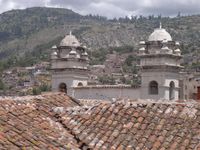 | 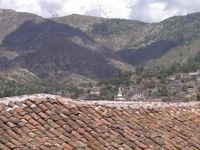 | ||
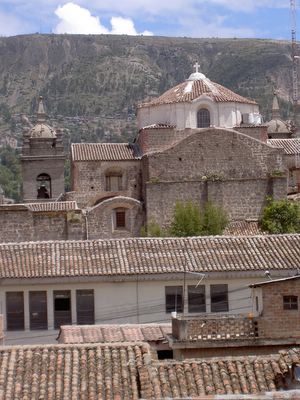 | |||
Also from the roof, I can see the striking contrast between the rooftop solar panels and the deteriorating red tile roofs. The hot water here is rather sporadic, so the various hosteliers have taken it upon themselves to provide their patrons hot water using the power of the sun along with the most recent technology from Japan.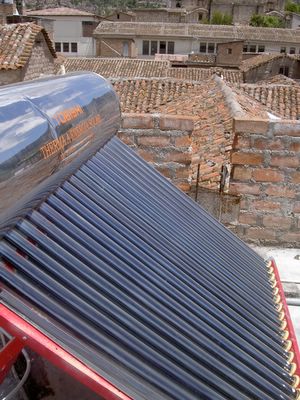
To get to our rooms, we walk around a small house down a long walkway with arches and potted plants. Various construction styles are open to view, using stone, brick, mud, wood, and concrete - all quite common in Peru. The only thing missing is using giant rock walls as part of the building. The arches are entirely ornamental - there are no doors or windows that open onto them. One is made of stone; the other from stone and mud.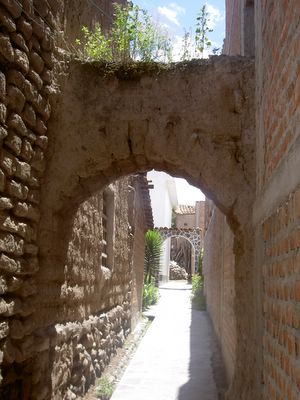
Just beyond the second arch, there is a chapel built into the hotel. They have services every Sunday at 10:00 a.m. As in almost all of the lodgings we have stayed in, there are pictures of Jesus in almost every room. Here they have also put up quotes from the bible. I am looking forward to the Sunday service, because our room backs right up to the chapel, so we should have music filtering through.
We went for a walk up one of the hills surrounding Ayacucho. Here's a view of our hotel.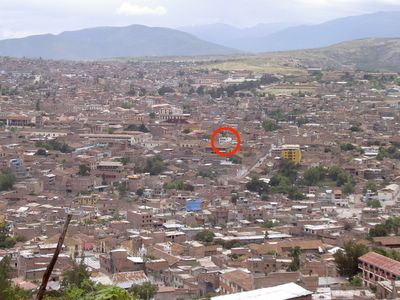
Out on the street, there are other sights that reveal how some of the day-to-day doings differ from the U.S. In every city we have visited in Peru, there are long lines of people snaking out of banks and out of various municipal buildings. Sometimes, an abundance of paperwork hangs from the hands of those queueing in front of government buildings. Ayacucho is no exception. I think a lot of the paperwork is an attempt to counter the powerful forces of corruption. Citizens here must go from office to office, building to building, getting the appropriate signatures in the proper order. As a result, filling out paper forms is practically an industry. Copy stores generally also have typists, so that you can have someone type up a form and then make copies. Here in Ayacucho there is a street I've dubbed "typists row". Typists sit out on the street with their typewriters, waiting for clients. And, there is no shortage of business.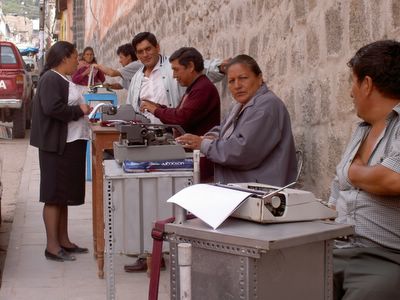

No comments:
Post a Comment